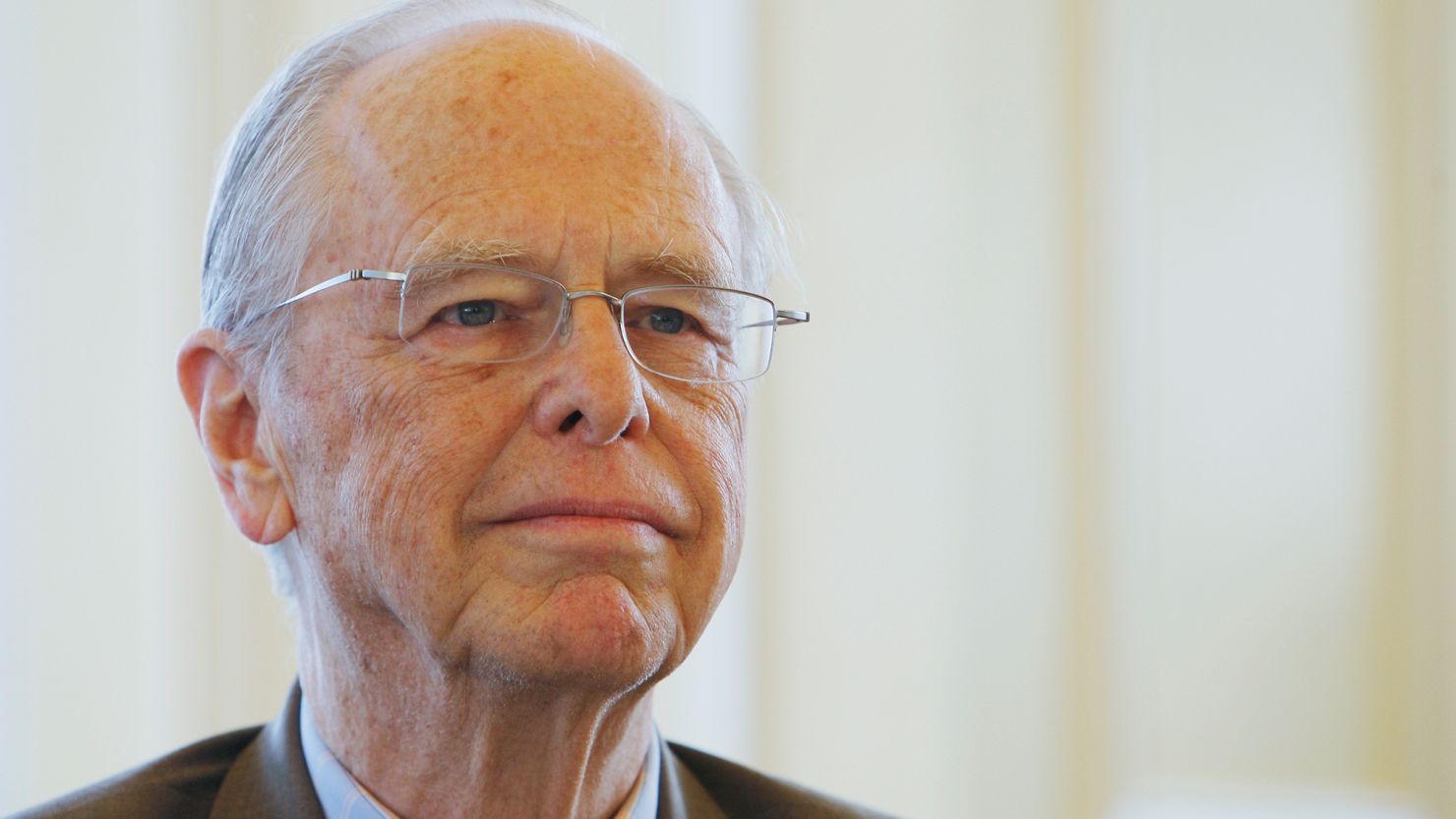Edward “Ned” Johnson III, who oversaw Fidelity Investments’ transformation into a financial services powerhouse and pioneered the sale of mutual funds directly to individual investors, died Wednesday. He was 91 years old.
Johnson died in Florida surrounded by family, according to Fidelity.
“He was a visionary, an innovator, and a philanthropist who had tremendous curiosity about the world around him and who lived his life to the fullest each and every day,” the Johnson family said in a statement. “To the end, he never lost his enthusiasm, his sense of humor, or his energetic spirit.”
Johnson served as chairman and CEO of Fidelity Investments, the company his father started, for over 40 years, and transformed the Boston-area mutual fund manager into the second-largest investment management company in the US and one of the most successful diversified financial services firms in the world.
When Johnson became president in 1972, Fidelity had $3.9 billion in assets under management. When he retired as chairman in 2016, that had ballooned to $2.1 trillion with another $5.7 trillion in assets under administration.
The firm, now led by his daughter Abigail Johnson, had $11.1 trillion in assets under administration, as of its February filing.
During his time at the helm of Fidelity, Johnson helped revolutionize the way Americans save and plan for retirement by making Wall Street more accessible to all investors.
In 1974, he broke the mold by selling mutual funds directly to individual investors instead of through traditional brokers. After the 401(k) was created by Congress in 1978, he introduced a retirement fund management system, which is now a foundational element of millions of Americans’ retirement plans. As the stock market began a sustained period of growth in the 1980s, Fidelity was the first companies to supply discount brokerage services to individuals. In 1995, it became the first fund company to create a website.
“He was playing three-dimensional chess when other people were playing checkers,” said Sanjiv Mirchandani, the former president of Fidelity Investments’ National Financial Services, in an internal memorial video created by Fidelity. “He thought several moves ahead and thought of all of the variables, but he also recognized that in a world of uncertainty and complexity that you need a true north, you need a compass.”
Johnson was born at the beginning of the Great Depression in Boston and graduated from Harvard in 1954. He joined his father’s firm in 1957 as a research analyst and became chairman and CEO after his father retired in 1976. Through his tenure at Fidelity, he amassed a personal fortune of $13.6 billion, the majority of which came from his 12% stake in the company, according to the Bloomberg Billionaires Index.
Johnson was also known for his interest in the arts and philanthropy. He was a collector of antique Japanese and Chinese art and a major donor to the Peabody Essex Museum in Salem, Massachusetts, and the Museum of Fine Arts in Boston. In 1991, Johnson created Fidelity Charitable, the first national donor-advised fund.
“He loved his family, his coworkers, work, the stock market, art and antiquities, tennis, skiing, sailing, history, and a good debate,” wrote Abigail Johnson, who took over as the firm’s CEO in 2014, in a LinkedIn post. “He could be counted on to have the contrarian view on just about anything.”
Johnson is survived by his wife Elizabeth (Lillie), his children Abigail, Elizabeth, and Edward, and his 7 grandchildren.





